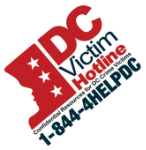Human trafficking is a crime in which traffickers use force, fraud, or coercion to control victims for the purpose of engaging in commercial sex acts or labor services against their will.
Sex trafficking occurs when victims are forced, defrauded (including false promises), or coerced (including threats against the victim or family member) into performing commercial sex, OR when a person under the age of 18 engages in commercial sex. Sex trafficking may occur in a variety of locations, including strip clubs, massage establishments, delivery or escort services, brothels, hotels, truck stops, or on public streets.
Labor trafficking occurs when individuals are forced, defrauded (such as through false promises), or coerced (including threats against the victim or family members) into performing labor or services. Labor trafficking may include situations of forced labor, requiring victims to work to pay off debts, and involuntary child labor. It can happen on farms, or in bars, private residences, factories, hotels, restaurants, travelling sales crews, and peddling rings.
What is Human Trafficking?
While not all of the indicators listed below are present in every human trafficking situation, and the presence of any of the indicators is not necessarily proof of trafficking, you may be a victim of human trafficking if someone:
- Forces you to do something you don’t want to do
- Does not pay you for your work or services
- Does not allow you to leave your workplace or home when you want
- Physically, sexually or emotionally abuses you
- Controls your personal identification documents, such as a passport or ID card
- Maintains locks on doors or windows preventing you from leaving
- Recruited you to work with false promises regarding the nature or conditions of your work or living situation
- Requires you to work excessively long or unusual hours
- Denies you food, water, sleep or medical care
- Limits your interaction with other people, including friends and family
- Makes a profit by you being forced to perform sexual acts
If you are being trafficked, you might:
- Be fearful of the controlling person and what they are capable of doing
- Not be able to make medical decisions for yourself, like when you need to go to the doctor or dentist
- Feel vulnerable, unsafe, or not know who to trust
- Not have access to your wages or money you earn
- Have had your personal documents, like a visa or birth certificate, taken from you
- Not be able to take breaks during work, or work very long hours
- Feel depressed, hopeless, irritable, tearful, or angry
- Have flashbacks, disturbing thoughts, or feelings of isolation
